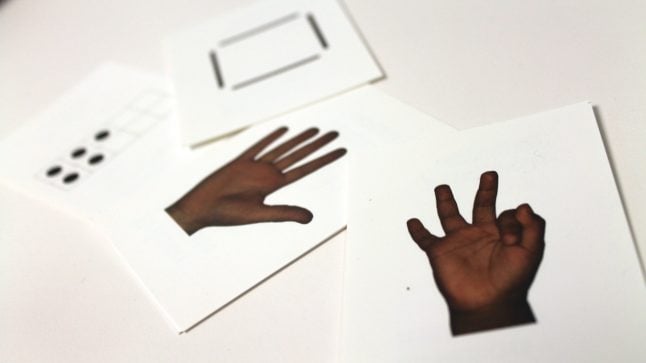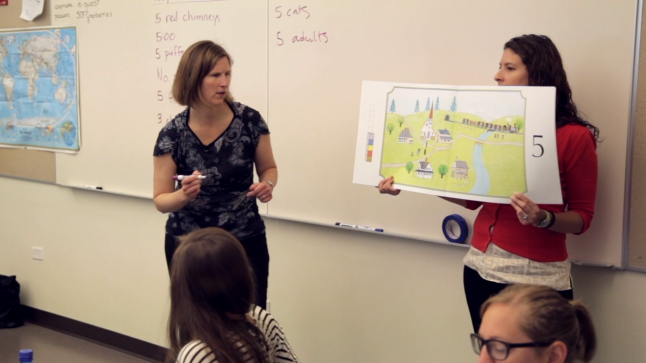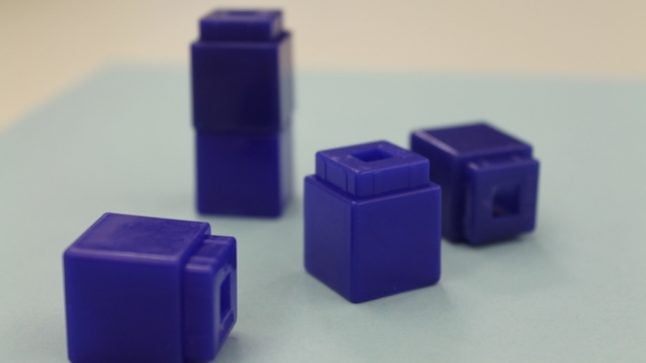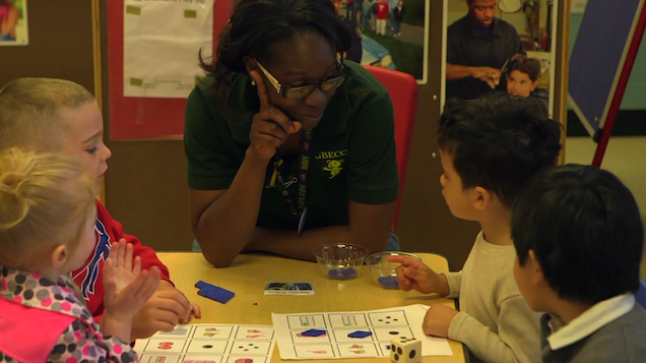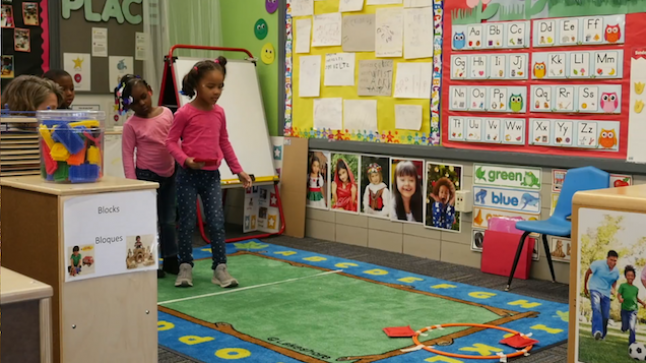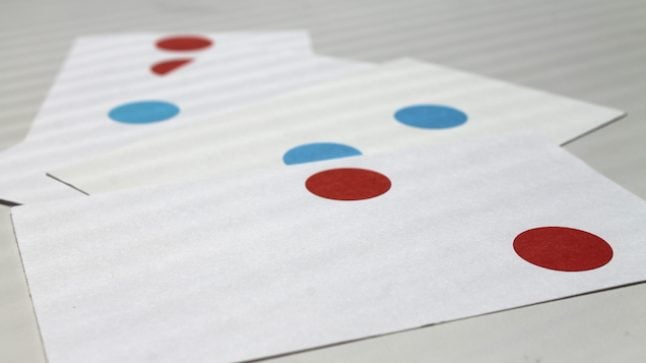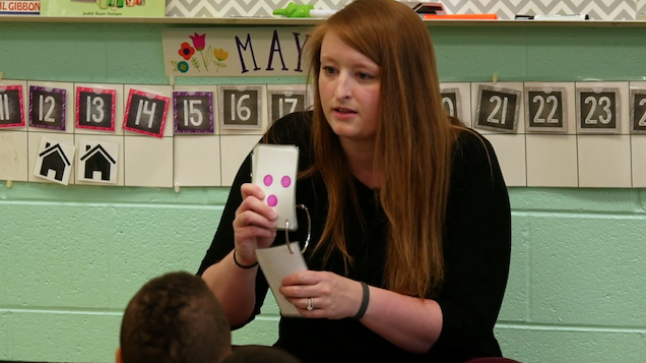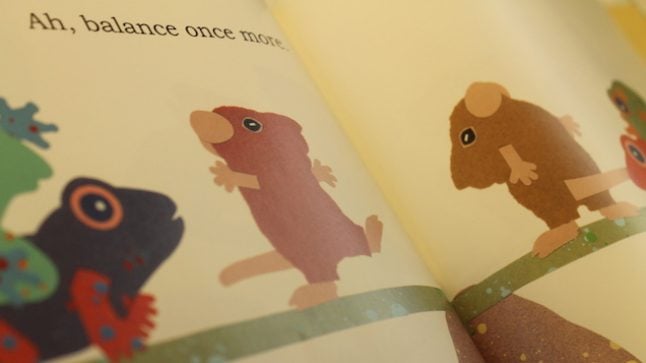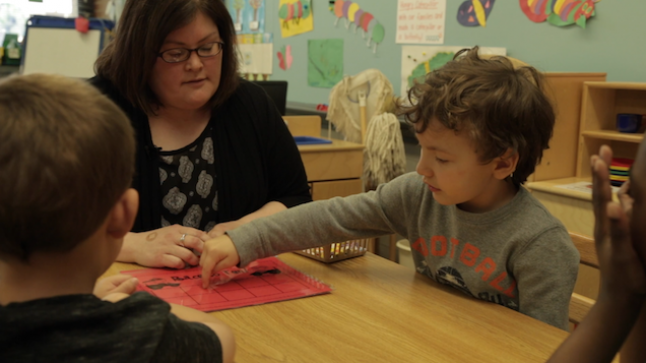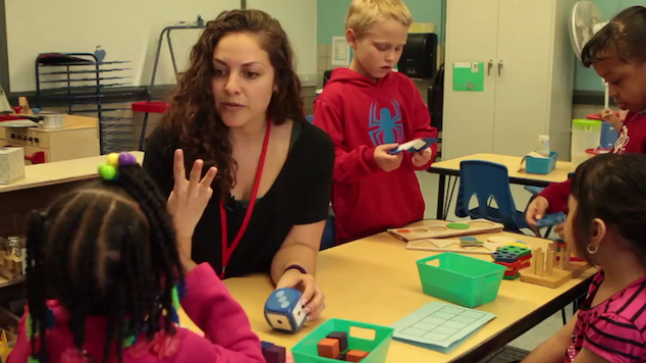Number sense is the ability to understand the quantity of a set and the name associated with that quantity. Strong number sense developed in the early years is a key building block of learning arithmetic in the primary grades, as it connects counting to quantities, solidifies and refines the understanding of more and less, and helps children estimate quantities and measurements.
Copyright: Erikson Institute’s Early Math Collaborative. Reprinted from Big Ideas of Early Mathematics: What Teachers of Young Children Need to Know (2014), Pearson Education.
Number sense involves some Big Ideas that can be explored with children, such as:
